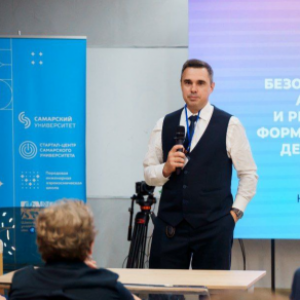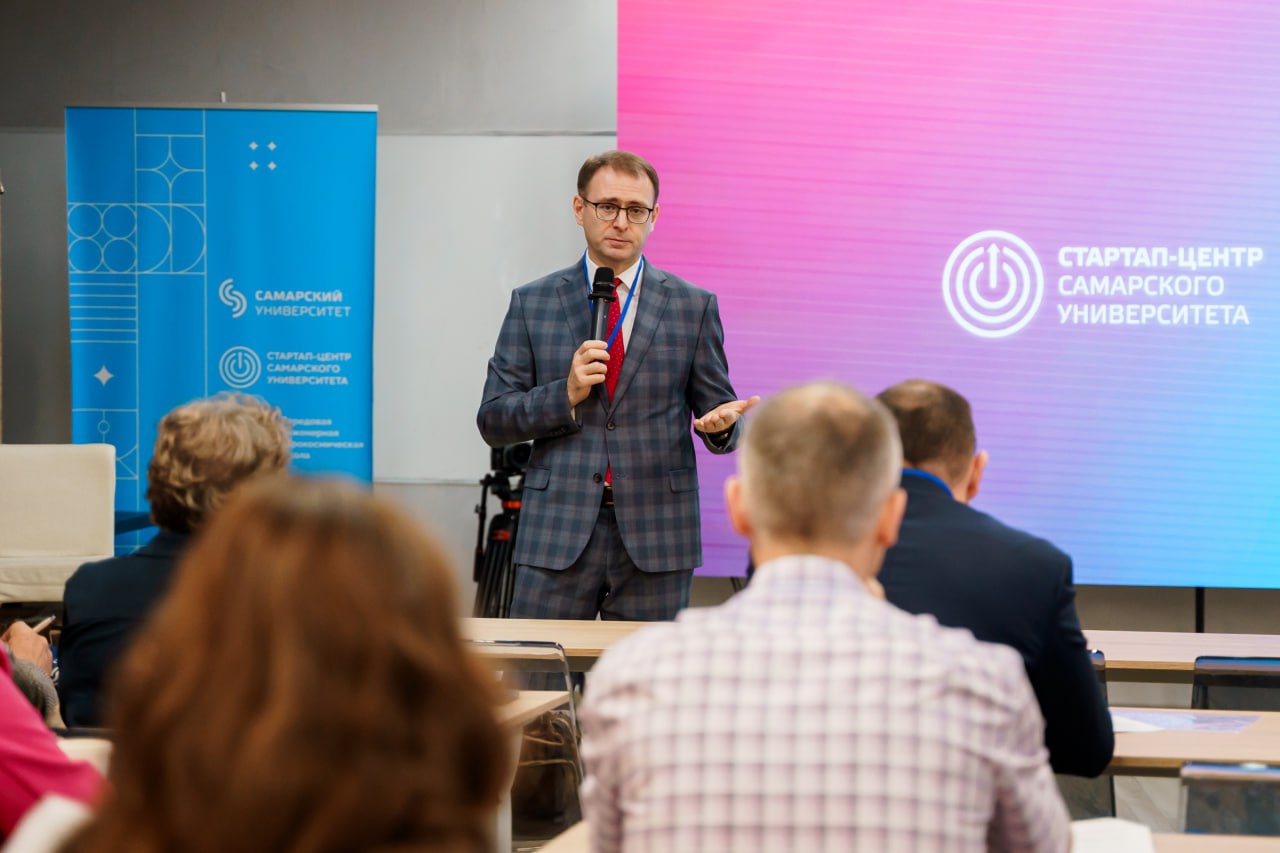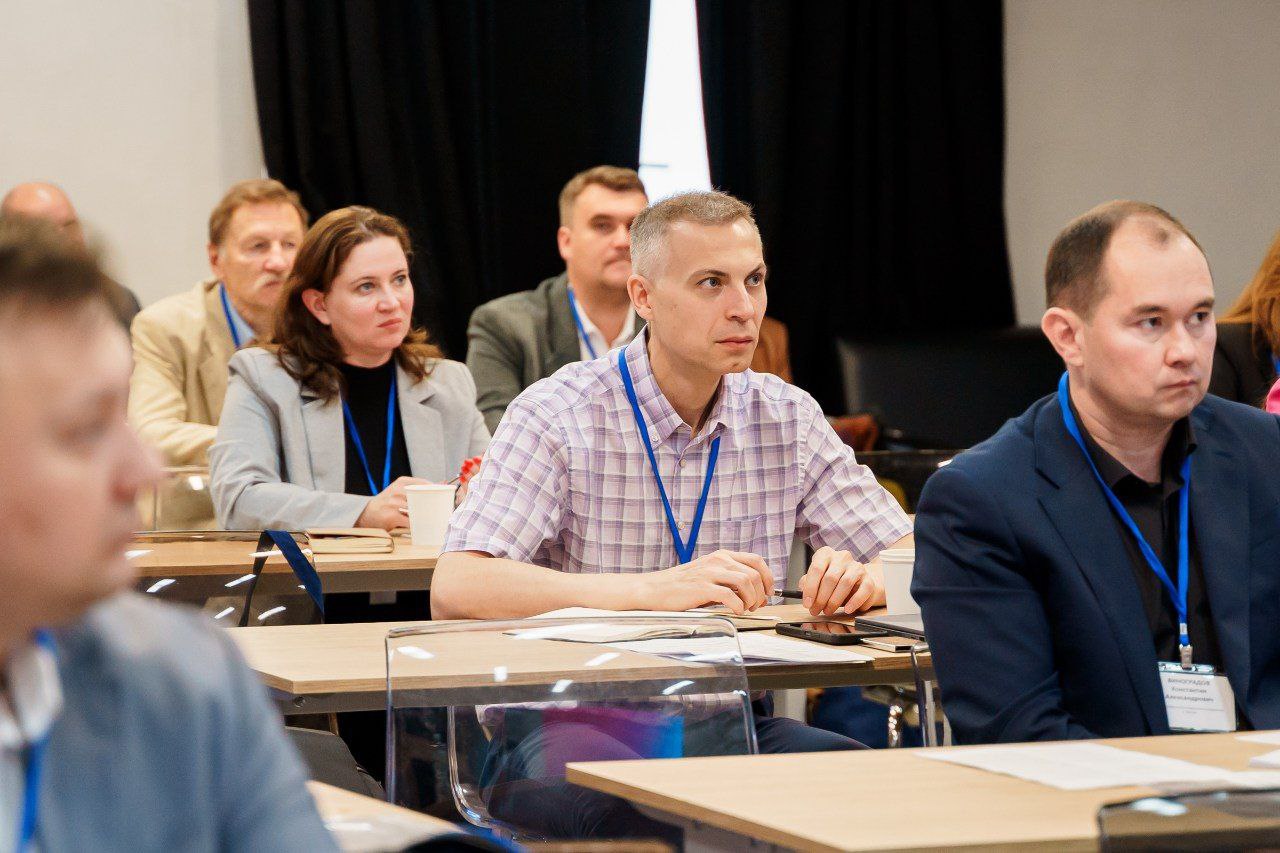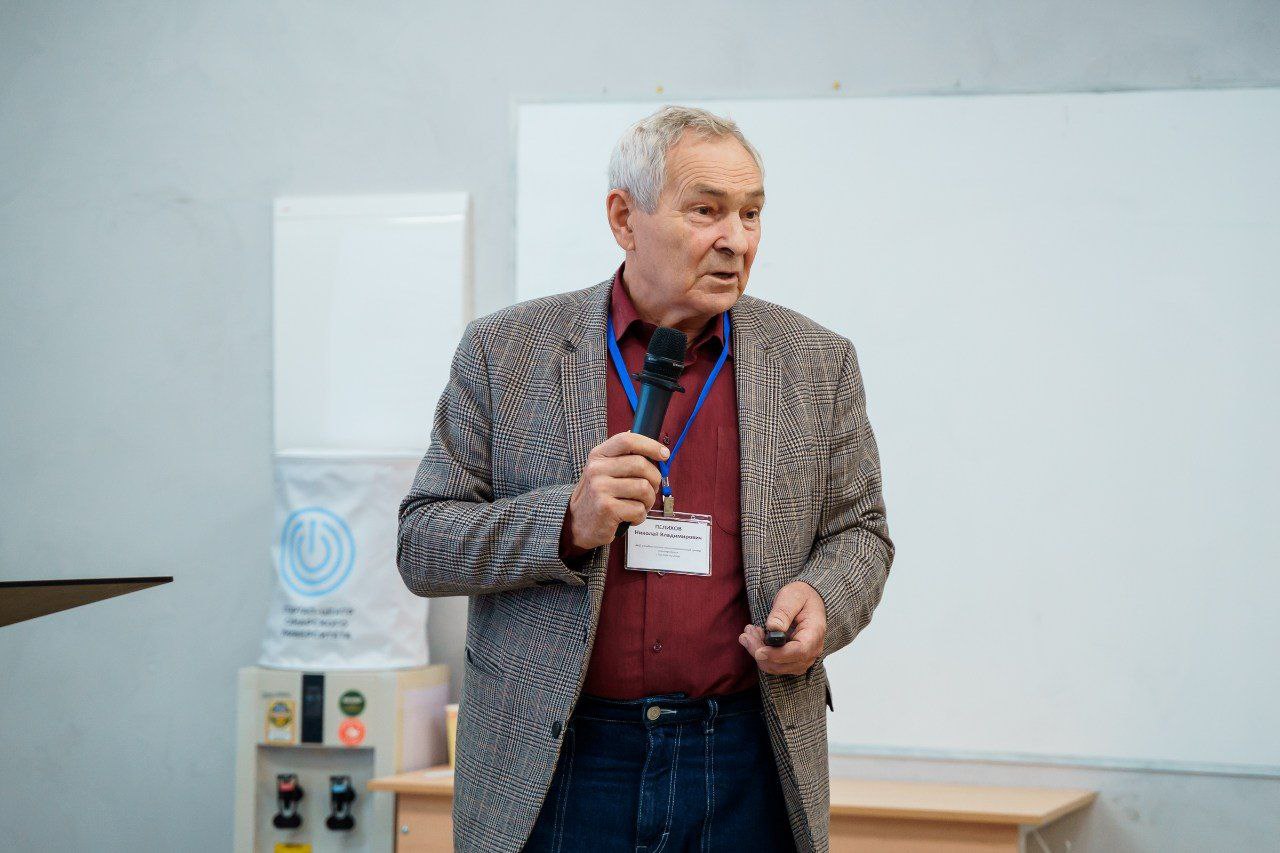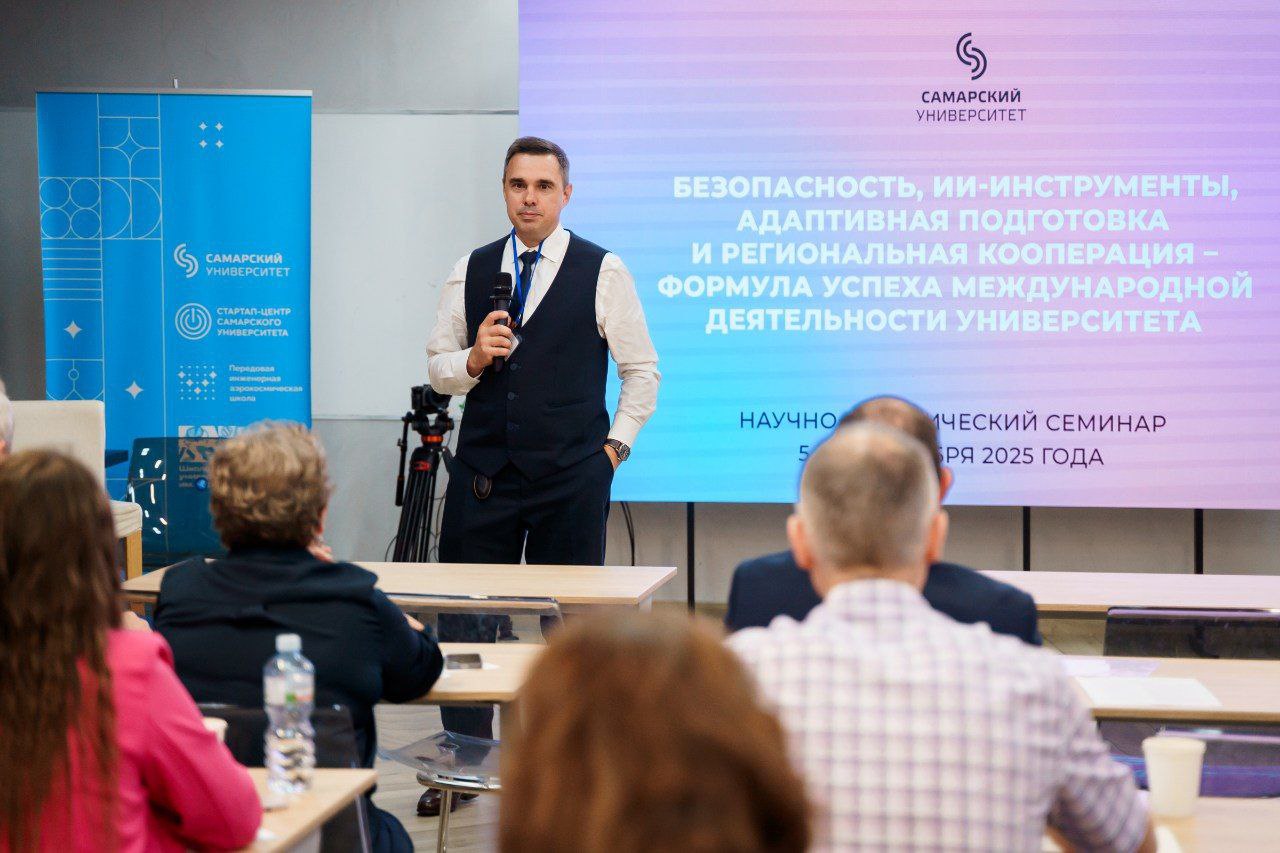At the site of the Startup Center of Samara University hosted a scientific and practical seminar “Security, AI tools, adaptive training and regional cooperation – a formula for success of the international university activities”. Along with the host party, the seminar was organized by the National Research University “MEI” and ANO “Internauka”, an organization that 30 years ago established the tradition of holding such events.
The moderator and coordinator of the seminar was the Head of the International Office Sergey Titz. Ten experts shared their experience and promising developments with the participants of the seminar. Among them are employees of the Sociocenter, leading educational and scientific consulting centers of the country, relevant vice-rectors and heads of departments responsible for international activities from universities in Moscow, St. Petersburg, Kazan, Tyumen, Rostov-on-Don, Nizhny Novgorod, Tomsk and other “university” cities of Russia.
The seminar participants were welcomed by Vladimir Bogatyrev, Rector of Samara University. He spoke about the key aspects of the university's international activities in terms of the educational process and scientific research, as well as shared information about the results of the admission campaign.
“At the moment, we have surpassed the 20,000 mark in terms of the number of students and postgraduate students. Now Samara University is the largest in the region both in terms of the number of students and the number of educational programs. At the same time, pool of international students remains stable, at the level of 1,000 people, of which about half are representatives of neighboring countries,” the rector said.
He offered several ideas for discussion, including the participation of universities in foreign projects of large Russian corporations as training centers, the formation of network programs with the participation of foreign universities, and a number of others.
“Our state corporations go abroad with large-scale projects. It is logical that we, Russian universities, should act as a “soft power” in such projects. To train local personnel for the operation and maintenance of constructed facilities, for their management,” stated Vladimir Bogatyrev. “It is necessary that our universities be involved in such participation in foreign projects, and the university community needs to purposefully convey this idea to the leadership of state corporations,” the rector emphasized.
The first discussion session, “International Activities of Russian Universities in the Context of National Priorities and Security (National, Informational, and Personal)”, opened with a presentation by Nikolay Pelikhov, scientific director of the Internauka educational, scientific, and consulting center. Its key theme was the consideration of Russia's national priorities in the strategies of international activities of Russian universities, which should contain a clear focus on the implementation of regional interests, among other things. Nikolay Pelikhov stressed that the university, which does not have its own strategy, will inevitably become the object of third-party initiatives.
Anatoly Koropchenko, Director of Development at the ANO of APE Russian Language Training Center, spoke about his experience working in Russian diplomatic structures in the Near Abroad. According to the expert, it is necessary to take into account that the modern youth of the CIS countries does not have a sense of common historical path, which was typical for older generations. This feeling needs to be shaped.
Vera Skorobogatova, Chief Specialist of the FSUE Sociocenter, spoke about the new model of Russian education and the prerequisites for the transition to this model. The expert also elaborated on the global challenges of education in the new geopolitical realities and the issues of creating a Eurasian educational space.
The seminar's program included three discussion sessions covering the most pressing topics in the international activities of Russian universities, as well as a visit to the Center for the History of Aircraft Engines at Samara University.
During the discussions, the seminar participants prepared a number of proposals for the Ministry of Education and Science of the Russian Federation, regional executive authorities, and higher education institutions to increase the attractiveness of the Russian education system for foreign citizens.
For reference:
Discussion sessions of the scientific and practical seminar “Security, AI tools, adaptive training and regional cooperation – a formula for success of the international university activities”.
· “International activities of Russian universities in the context of national priorities and security (national, informational, personal)”. Moderator: Sergey Titz, Head of the International Office of Samara University;
· “Possible models for organizing cooperation between universities and regional participants in foreign economic activity. The role and contribution of universities in regional development strategies”. Moderator: Nikolay Pelikhov, Scientific Director of the ANO “Internauka Educational, Scientific and Consulting Center” (Rostov-on-Don);
· “The possibilities of artificial intelligence (AI) in organizing international activities”. Moderator: Sergey Titz, Head of the International Office of Samara University.
 RU
RU  EN
EN  CN
CN  ES
ES 